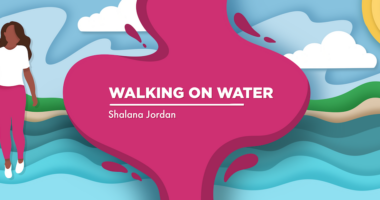My darkest day showed me that death was nearer than I’d realized
How facing death in the hospital changed my perspective on life with aHUS

Death is something no one wants to talk about, deal with, or experience. In September 2020, after an asymptomatic bout of COVID-19, I landed in the intensive care unit (ICU) for almost two months with multiorgan failure and hemolytic anemia caused by atypical hemolytic uremic syndrome (aHUS). Suddenly, I wasn’t just on the brink of death, but surrounded by it daily.
The ICU is a quiet and foreboding place. I’d hear the echo of beeping heart monitors and the sounds of loved ones choking back tears. The nurses didn’t giggle and socialize as much as they do on other floors.
I had to do dialysis regularly because I was in renal failure. Nurses would roll my bed into a room filled with several other patients. One morning, there was an older woman next to me I hadn’t seen before.
It wasn’t uncommon for us to fall asleep during dialysis. We were all incredibly sick from kidney failure and were usually there for three or four hours. Technicians monitored our blood pressure and fluid removal and would occasionally wake us to ask questions or discuss lab work.
But when they spoke to the new woman, she didn’t stir. They said her name again and rubbed her hand. Still no response. The technician spoke louder and squeezed her hand, telling her she needed to wake up. Still nothing. The entire room fell quiet.
Another technician was already on the phone calling for a doctor. She called across the room to her colleague by the bed, asking, “What’s her blood pressure?”
The technician tending to the woman said, “60/20.”
The room descended into chaos. Two nurses came running in to help. Then a doctor ran in asking for the woman’s vitals as he pulled his stethoscope off his neck and put in the earpieces to listen to her heart and breathing. Like the technician, he tried to get her to answer, but still nothing.
Then, it was just like in the movies — an alarm went off signaling that her heart rate monitor had flatlined.
“Get me a crash cart!” he yelled.
Everything was happening so fast that it felt like a fever dream. I was completely committed to silent prayer for this woman to wake up. It was so scary that I think I was holding my breath. But I was drowsy, and the room began spinning. No! I was starting to pass out!
That might sound dramatic, but it was normal in my situation. I was so weak and close to dying that it was hard to stay conscious longer than an hour during my first two weeks in the ICU. And dialysis lowered my blood pressure, which made me especially groggy.
My scope of vision began to shrink. This is what it feels like to black out. The last thing I remember was a flash of white from the doctor’s crisp lab coat. He’d climbed on top of the woman and begun chest compressions. I passed out as a nurse pulled a white curtain around her bed.
When I awoke, I was back in my room. I’d almost forgotten the earlier terror, but the memories suddenly hit me. I pressed the call button.
“Hello, Sleeping Beauty, how ya feeling?” The nurse who came in was my favorite in the ICU. She was bubbly and personable, and even helped me prank other nurses a few times.
“There was a lady in dialysis — the doctor was doing CPR. What happened to her?” I asked.
Her smile faded. She shook her head and looked down. I knew what that meant. She quickly changed the subject and asked if I wanted lunch. I wasn’t hungry.
Days ago, I’d been healthy, and now I was surrounded by death at every turn. I had to face my own mortality. I still can’t shake that terror. The doctor atop the woman doing chest compressions is burned into my memory, and I tear up just thinking about it.
I wasn’t sure if I wanted to share this story. It’s easily my darkest memory, but it’s important. Patients with severe chronic or rare diseases face the potential of a similar situation every day. People in the hospital told me I’d almost died, but I didn’t believe them until that moment in the dialysis room when I watched someone just as human, sick, and real as me die.
Life is precious. While what we endure daily can be difficult, it pales in comparison with the alternative. At this moment, we’re alive. Even on our darkest day with illness, we’re still alive. Many of us have been given the opportunity to survive, to fight, to live, and to share our journey. Living and surviving with a rare or chronic illness are like walking on water.
Note: aHUS News is strictly a news and information website about the disease. It does not provide medical advice, diagnosis, or treatment. This content is not intended to be a substitute for professional medical advice, diagnosis, or treatment. Always seek the advice of your physician or other qualified health provider with any questions you may have regarding a medical condition. Never disregard professional medical advice or delay in seeking it because of something you have read on this website. The opinions expressed in this column are not those of aHUS News or its parent company, Bionews, and are intended to spark discussion about issues pertaining to aHUS.








Bonnie Corley
Thanks for sharing this account. I was on life support for half of the 62 days I spent in ICU. Many people in ICU didn’t recover and their families called on my husband, who they heard singing to me, come to their loved one’s room to usher them to eternal life. My husband saw so many pass away while awaiting and praying for me.